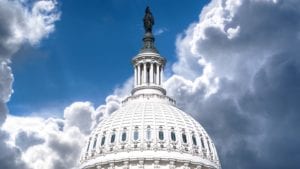EARLY next month the Supreme Court will hear arguments in King v. Burwell, the latest significant legal challenge to the Affordable Care Act. The petitioners argue that under the statute, the federal government is not allowed to provide health insurance subsidies in the 37 states that have either declined or failed to establish their own exchanges.
Should the court decide in the petitioners’ favor, most likely in June, critics in Congress will feel vindicated. But then comes the hard part: Congress must be ready with a targeted plan to help at least six million people who would quickly lose that federal assistance, and most likely their insurance.
While several Republicans in Congress have offered serious proposals to replace Obamacare, debating a wholesale replacement of the Affordable Care Act would take months, even years. But it is essential for Congress to move fast on a short-term solution. About 85 percent of people who bought plans on the exchanges receive subsidies, and most could not afford the policies without them. If fewer people are enrolled and new enrollments decline, premiums will rise, leading to the breakdown of the exchange markets.
If the Supreme Court decides that the Affordable Care Act means what it says — that subsidies are available only if a state establishes its own exchange — then President Obama’s signature legislative initiative would be significantly weakened in two-thirds of the states.
Fortunately, there is a way out, one that President Obama, forced by the court to the negotiating table, might be willing to accept. The first step would be for Congress to pass legislation that would allow people to keep subsidies they have already received, and allow subsidies for existing policies to continue through this year so people don’t immediately lose their existing coverage.
Then, beginning in 2016, instead of subsidies to individuals, the 37 states without exchanges could receive a new, capped allotment from the federal government that we call health checks. States could use the allocation to provide immediate premium assistance to people affected by the court decision, and similar checks could be extended to others who would need insurance afterward.
The money would be distributed using the same infrastructure used to disburse funds for the Children’s Health Insurance Program, which covers nearly nine million children. States know how to manage this platform, and could use it to distribute insurance premium support. (The “checks” could, of course, be distributed as electronic credits to insurers, which would be applied on a monthly basis to offset the cost of insurance policies individuals select.)
This might sound like the same subsidies by a different name, but one advantage would be that health insurance policies supported by health checks would not be subject to the Affordable Care Act’s mandates, taxes, insurance rules and benefit requirements.
Currently, to qualify for a subsidy under the act, a health plan must cover a long list of benefits, many of which unnecessarily increase costs. Under our plan, people could apply their allotments toward the purchase of any health insurance plans or policies approved by their state. States could decide what regulations were needed to protect consumers while still providing opportunities for less expensive policies unburdened by excessive regulation and mandates. Such flexibility would also increase enrollment rates: People would be more likely to purchase policies if they had options that cost less and better fit their needs.
Continue reading the main story
Continue reading the main story
Of course, in reality, should the court decide against the Affordable Care Act, there are other options. Some supporters of the law are encouraging President Obama to simply declare existing federal exchanges to be state exchanges or license them to the states — a move that would further complicate an already ungainly law and already frayed executive-congressional relations.
Others say that the 37 states without federal exchanges would have no choice but to quickly establish exchanges so that residents didn’t lose coverage, even if they were ardent opponents of the law. Some might, but it’s a good bet that many wouldn’t, at least not in time to prevent their citizens from losing coverage.
Health checks offer a politically palatable third way. They would return control over health insurance to the states, with new resources to help their residents. And they would preserve the Affordable Care Act’s present extension of coverage, which would make them more palatable to the Obama administration.
There is no way to know how the Supreme Court will rule in King v. Burwell, but it is incumbent upon both parties in Congress to be ready for the fallout should it decide against the Affordable Care Act. Health checks offer a simple, practical answer, and a start toward further efforts to reform our health insurance system.




